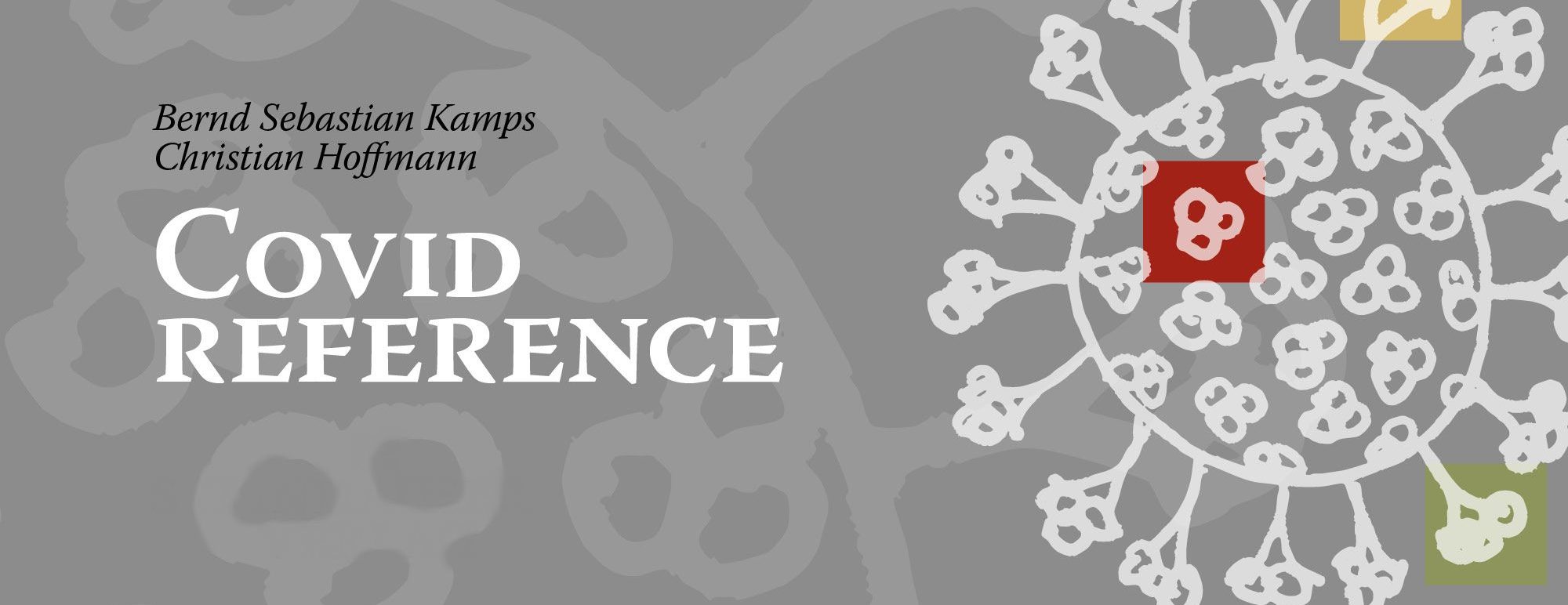Home | Top 10 | DEU | ENG | ESP | FRA | ITA | POR | TUR | VNM
Sunday, 7 June
Three super-spreading events in an office, a restaurant and a bus show how easily SARS-CoV-2 can be spread over distances of more than 1 meter. The feature by El País is worth taking a look, even if you don’t understand Spanish: https://elpais.com/ciencia/2020-06-06/radiografia-de-tres-brotes-asi-se-contagiaron-y-asi-podemos-evitarlo.html.
The Guardian titles: Are we underestimating how many people are resistant to Covid-19?
Monday, 8 June
Attending a sporting event, concert or play? Attending a wedding or a funeral? Stopping routinely wearing a face covering? Attending a church or other religious service? Hugging or shaking hands when greeting a friend? Going out with someone you don’t know well? When asked by The New York Times when they would expect to resume these activities of daily life, 42% to 64% of epidemiologists and infectious disease specialists answered they would prefer waiting a year before doing it again. The enquiry by Margot Sanger-Katz, Claire Cain Miller and Quoctrung Bui: When 511 epidemiologists expect to fly, hug and do 18 other everyday activities again.
It becomes increasingly clear that not all patients recover fully from SARS-CoV-2 infection. See ‘It feels endless’: four women struggling to recover from Covid-19. (If you read Spanish, check also Los últimos de la UCI).
Dozens of new infections reported in Kabukicho, a district of more than 4,000 bars, restaurants and commercial sex establishments in Tokyo.
Tuesday, 9 June
New Zealand returns back to pre-COVID-19 life.
In Brazil, “poverty, poor access to health services and overcrowding all play a part in a disproportionate number of deaths”, reports The Guardian. Coronavirus death rates expose Brazil’s deep racial inequalities.
Wednesday, 10 June
The Guardian publishes an analysis of the Surgisphere scandal (the retracted paper about hydroxychloroquine trial).
NIAID Director Anthony Fauci says the coronavirus pandemic is far from over.
The OECD says Britain will top the developing world’s recession league table.
British theatre might go out of business.
Thursday, 11 June
India, Mexico, Russia, Iran and Pakistan decide to end lockdowns.
Neil Ferguson, a former scientific adviser to the British government, says earlier restrictions could have halved the death toll.
If you read Spanish: Las mascarillas, claves para evitar una segunda oleada de la pandemia (El País).
Friday, 12 June
Beijing reimposes lockdown measures after a new COVID-19 outbreak around the wholesale market of Xinfadi (北京新发地水果批发市场).
Northwestern Memorial Hospital in Chicago announces that a young woman in her 20s whose lungs were destroyed by COVID-19 received a double lung transplant.
If you read French: Coronavirus – au cœur de la bataille immunitaire contre le virus.
Saturday, 13 June
What have Venice, Amsterdam and Barcelona in common? Before the COVID-19 pandemic they were overrun by tourists. Tourism certainly contributes to the wealth of these cities, but the vast majority of the populations – all those who are not directly or indirectly employed in mass tourism – receive no benefits from millions of people transiting their neighborhood. The weekend of 13/14 June, just before the reopening of the Schengen area (see 15 June entry), is therefore a unique opportunity for people in hundreds of small and big charming cities throughout Europe. They enjoy the place where they live with those who were born there or chose to live there – like 10, 20 or 30 years ago, before the beginning of the tourist pandemic.
According to figures from the British Office for National Statistics (ONS), people living in more deprived areas are twice as likely to die from coronavirus (ONS | The Guardian).
Most Europeans now trust their leaders generally a little less than when the crisis began.
Malta’s abortion taboo leaves women in despair.
